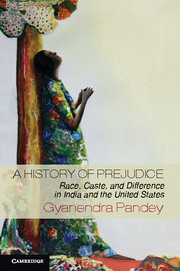6 - Dalit Memoirs
Rescripting the Body
Published online by Cambridge University Press: 05 February 2013
Summary
Dalit autobiography emerged as a category in the 1970s, along with a new kind of protest poetry as well as fiction that was not always removed from writings in an autobiographical mode. Many of these writings foregrounded the vicious history of (vernacular, visible) caste prejudice. They did so through a recitation of the practices of othering – discrimination, exclusion, and humiliation – that have been central to the rural (and urban) performance of caste and, not least, through their depiction of the bodies of suffering, laboring lower-caste men and women, bodies that come to bear the distinct marks of such oppression, discrimination, and exclusion. In their description of the Dalit struggle to overcome the history of this oppression and to inhabit a different kind of body, they also tell us a good deal about the play of a less visible, universal prejudice – the common sense of the age, or of the community that says, casually, that's how it is, and, implicitly, how it is meant to be.
The reminiscences I consider in this chapter belong to the category of what might be described as resistance literature, emerging out of and building on recognized traditions of political and intellectual resistance. The very titles of numerous Dalit life-writings indicate the history of stigmatization, oppression, and poverty against which the Dalit self (individual or collective) is insistently, and perhaps necessarily, articulated: Joothan (the leftovers of the upper castes’ food that we lived on); Apne Apne Pinjre (our own individual cages); Upara (outsider); Uchalya (thief, or pilferer); Akkarmashi (half-caste, or bastard); Baluta (the services traditionally required of the lowest castes in rural Maharashtra); Aaydaan (the weaving of baskets from bamboo, condemned as an Untouchable occupation); Dohra Abhishaap (twice cursed).
- Type
- Chapter
- Information
- A History of PrejudiceRace, Caste, and Difference in India and the United States, pp. 162 - 193Publisher: Cambridge University PressPrint publication year: 2013



